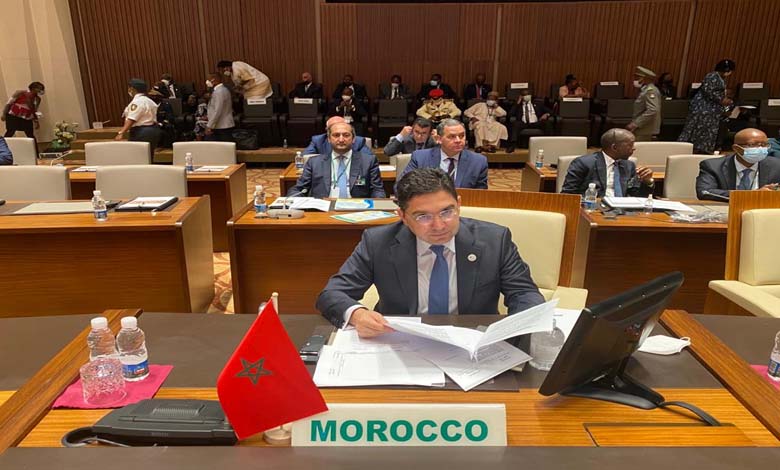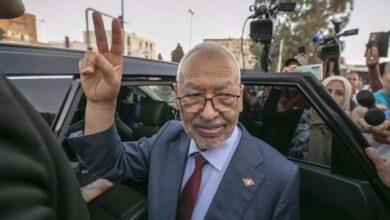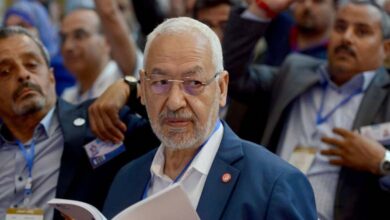Bourita: The Moroccan Sahara issue is no longer on the agenda of the African Union
The Moroccan Minister of Foreign Affairs confirms that only one country has raised the issue of the Moroccan Sahara, even though it was not on the agenda

Moroccan Foreign Minister Nasser Bourita has stated that discussions among African leaders during the African Union summit in Addis Ababa focused on the continent’s real problems, noting that the issue of the Moroccan Sahara was not on the agenda and yet one country sought to raise it, indirectly alluding to Algeria, which seeks to prolong the conflict by supporting the separatist Polisario Front and providing political cover for its leaders, which constitutes a contradiction at a time when interventions focused on crises undermining development in the region.
Bourita said that “the issue of the Moroccan Sahara is no longer up for discussion” within the African Union, with leaders convinced of the futility of rehashing some outdated positions, clarifying that speeches by presidents during the summit, including that of African Union Commission President Moussa Faki Mahamat and the new African Union President, Mauritanian President Mohamed Ould Ghazouani, did not touch upon the fabricated conflict around the Moroccan region.
He added that leaders discussed the real problems facing the African continent that hinder development and the economy, without delving into artificial conflicts aimed at division. Morocco attaches great importance to its African commitment by building communication bridges and economic partnerships based on mutual economic interests, away from political posturing.
The Atlantic initiative launched by Morocco to enable countries in the Sahel region to access the Atlantic is evidence of the Kingdom’s success in implementing strategies aimed at promoting economic and social development on the African continent.
Bourita emphasized that “peace, security, and development are intertwined issues that move forward together, hence the importance of adopting a comprehensive, integrated, and multidimensional approach, based on the close interplay between these three dimensions,” according to the Moroccan national portal.
He also stressed that “recognizing the value of discussion platforms on this interplay is necessary,” emphasizing that “the Tangier, Aswan, Dakar, Luanda, and Lome routes provide a fertile ground for ideas and the success of this approach where development is the main bulwark against instability and insecurity, aligning with the Ten-Year Plan of Agenda 2063.”
He called for “the adoption of preventive diplomacy and mediation to prevent conflicts in Africa,” stating that “in the face of Africa’s situation, characterized by security challenges and growing conflicts, there is an urgent need to strengthen the early warning system and prevent the outbreak of conflicts, particularly through preventive diplomacy and mediation.”
He added that the current situation in Africa “raises growing concerns characterized by the persistence of security challenges… There is no region on the continent today that is immune from sources of instability.”
He continued, saying that “this conflict-ridden pattern that characterizes Africa today persists in a worrying manner, underscoring the urgent need for a collective and coordinated response to preserve peace, security, state sovereignty, and territorial integrity.”
Algeria has reacted to the growing cooperation between Morocco and African countries and the accession of some Sahel region governments to the Atlantic initiative with hostile measures, including closing doors to external loans and banning companies from conducting transactions with Moroccan ports, the latest sign of Algerian diplomatic confusion.
Observers interpret Algeria’s recent moves as a sign of confusion affecting Algerian diplomacy, which fears increasing Moroccan influence in Africa, while all its attempts to regain a presence on the continent have failed, especially after the end of the peace and reconciliation agreement in Mali and its failure to repair relations with Bamako.
The Ethiopian capital, Addis Ababa, hosted the ordinary 37th session of the Conference of Heads of State and Government of the African Union last weekend, and Mauritanian President Mohamed Ould Ghazouani took over as president of the bloc for the year 2024, succeeding outgoing rotating president Comorian President Azali Assoumani.












